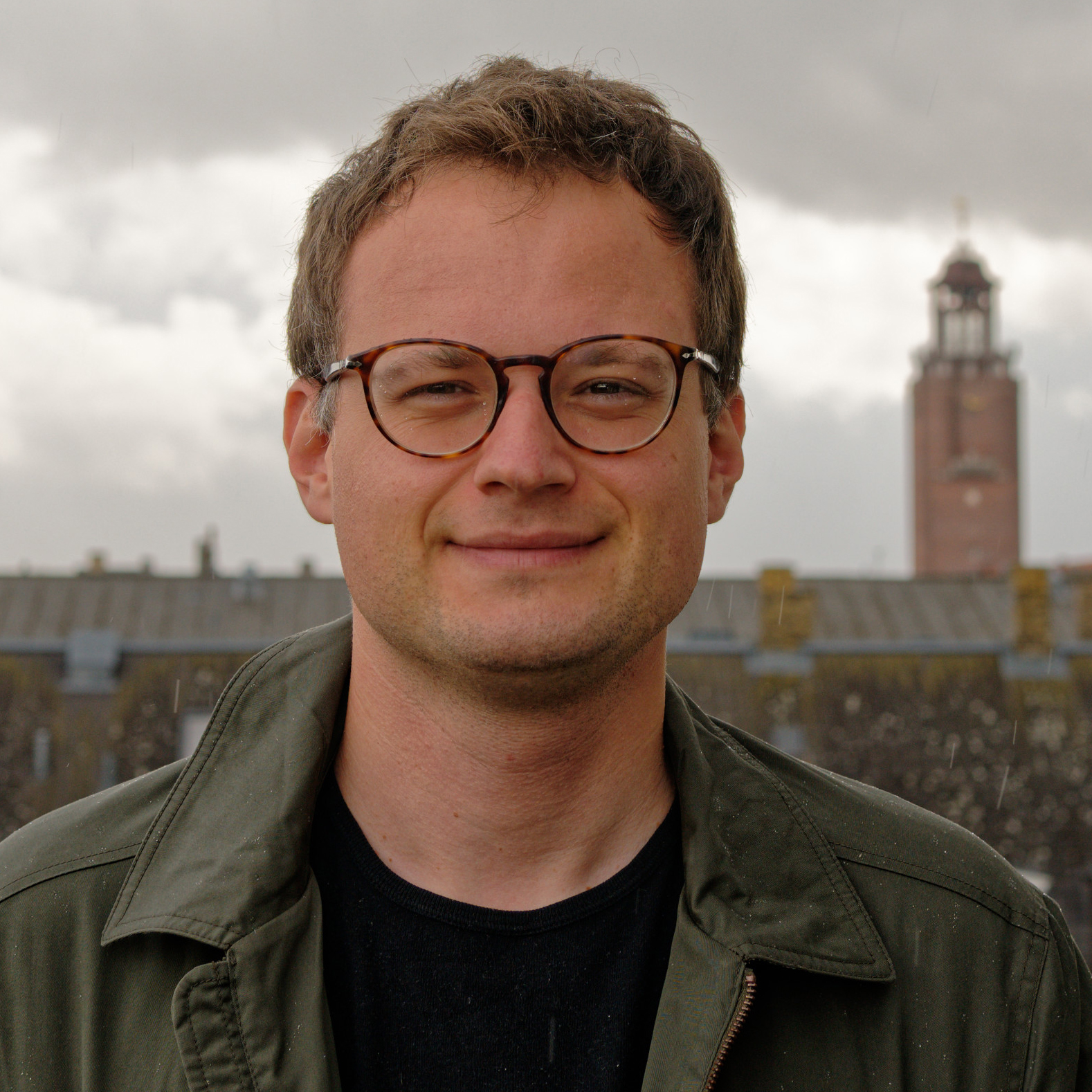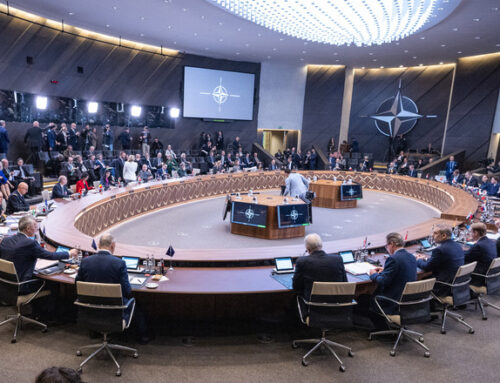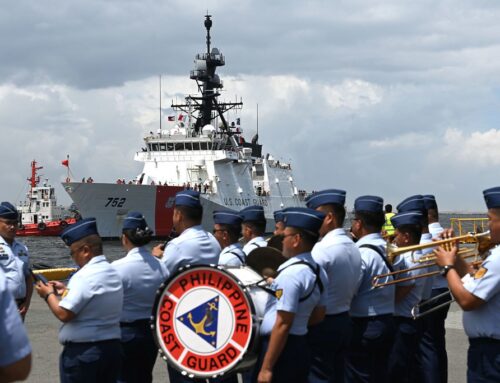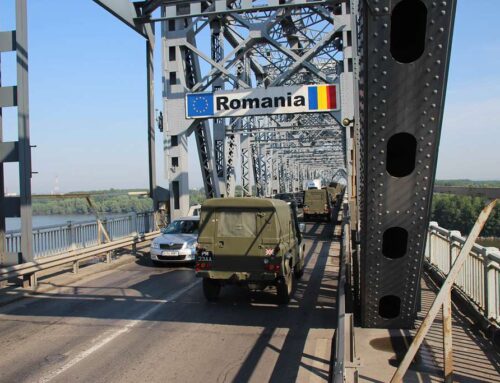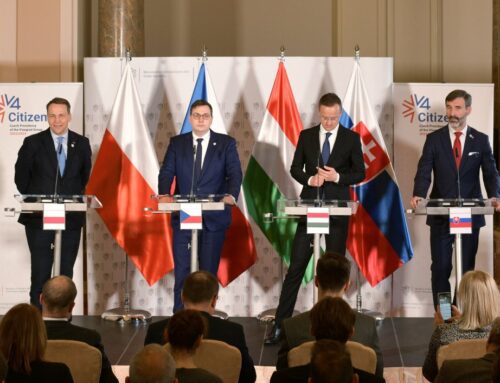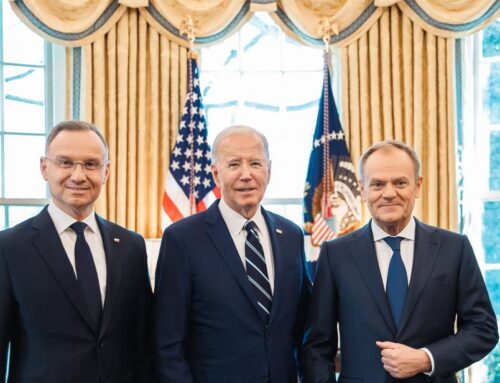EXPERT’S COMMENTARY: The West needs a communication strategy about the war in Ukraine (Miłosz J. Cordes)
Autor foto: Domena publiczna
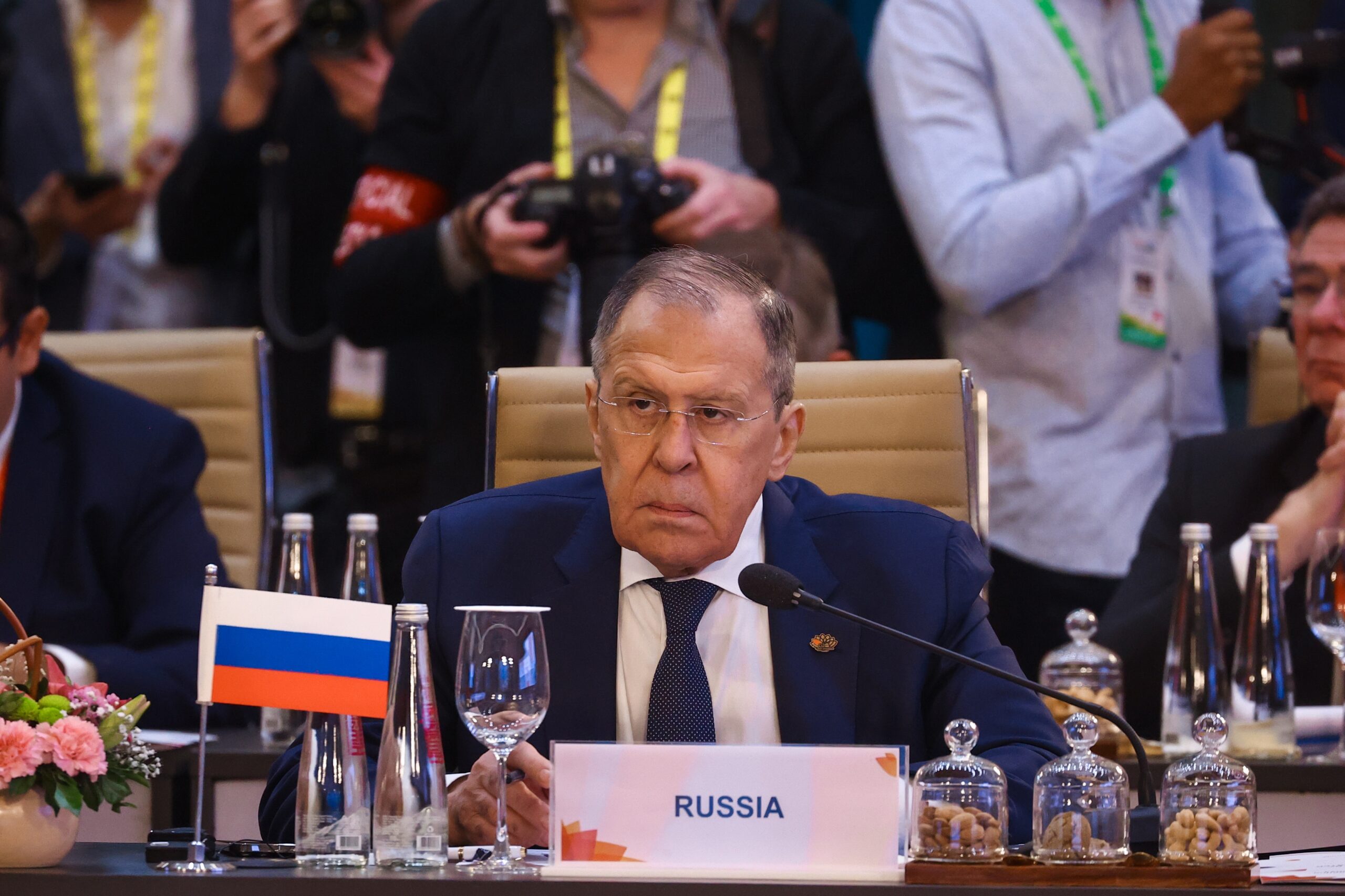
The West needs a communication strategy about the war in Ukraine
15 marca, 2023
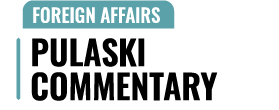

EXPERT’S COMMENTARY: The West needs a communication strategy about the war in Ukraine (Miłosz J. Cordes)
Autor foto: Domena publiczna
The West needs a communication strategy about the war in Ukraine
Autor: Miłosz J. Cordes
Opublikowano: 15 marca, 2023
One year into Russia’s full-scale invasion of Ukraine, the West is in need for a diversified strategy when discussing the conflict with its partners. Due to historical experiences, non-European and non-Western countries look at the Russian aggression differently. Supporting Ukraine thus means learning how communicate the consequences of the ongoing invasion in a language that would take into account addressees’ sensitivity. Such language is essential to assist Kyiv in winning the war and embarking on a path of successful and quick recovery.
Introduction
In a recent Pulaski Commentary, Sebastian Czub summarised Vladimir Putin’s address to the Federal Assembly, delivered on February 21st.[i] One can argue that the speech, apart from having a clear domestic angle, was directed at two main audiences outside of Russia. The first one was right-wing populist movements and Russlandversteherin the West, mainly in the European Union. The second one was the non-Western and non-European states, many of which belong to the Global South and Putin’s focus on this audience should be of long-term concern the European Union and NATO.
Sebastian pointed out how lengthy and repetitive the speech was. Of course, it was meant to discipline and consolidate Russian ruling elites in times of growing discord between various factions at the Kremlin. The dullness of the points Putin made accusing ‘the regime in Kyiv’ of fascism and dependency on the United States sounded ridiculously to the Western ear. There were, however, many others who listened to the Russian President. They position themselves outside of the collective West not only in geographic and political, but also worldview terms.
Most important in this context are African and Latin American nations. Their experience with the United States and Europe is full of grim episodes of colonialism, slavery, exploitation, and destruction. The image of the West as a community of democracies based on human rights and personal freedoms does not seem credible to them. It is tainted by the decades of struggle for political independence and by brutal oppression, as well as for distinct cultural and societal identity.
These countries have a strong point in thinking this way. After all, still back in 1950s, when the European integration had already started, Belgians hosted a human zoo in Brussels. Many European countries and the U.S. have had a long record of military interventions and economic exploitation. Colonisation of the Congo allowed the Belgians to provide uranium necessary to construct world’s first nuclear bomb. Whereas Belgium benefitted by receiving a disproportionately high assistance from the Marshall Plan, the Congolese were left with little, if not nothing.
The Russian appeal
In the optics of many non-Western countries, Putin’s rhetoric about the war in Ukraine being fought against the Western hegemony sounds credible and appealing. Russian President applies a different perspective in which Russia claims to be one of the main opponents of the allegedly neo-colonial international policy pursued by Washington and Brussels. The Kremlin accuses the latter of violating the UN system and interfere with other states’ internal affairs under the pretext of the right to self-determination:
Over the long centuries of colonialism, diktat, and hegemony, they got used to being allowed everything, got used to spitting on the whole world. It turned out that they treat people living in their own countries with the same disdain, like a master. After all, they cynically deceived them too, tricked them with tall stories about the search for peace, about adherence to the UN Security Council resolutions on Donbass. Indeed, the Western elites have become a symbol of total, unprincipled lies.[ii]
By using such narrative, Putin seeks to take advantage of the image that the Soviet Union created among many African, Latin American and, to some extent, also Asian nations. Moscow was seen as the only alternative to the global capitalism and fiercely opposed Western colonisation. It worked actively towards decolonisation, educating national elites, and opposing a world in which the Global North would remain the dominating force.
Such an image can appeal to major players, too. India, although itself a democracy, has taken a rather ambivalent stance on the war, partly due to New Delhi’s own colonial experiences. When mixed with the Indian army relying almost exclusively on Russian weaponry,[iii] it becomes clear that then West needs to look for different ways to make sure India at least remains neutral in the conflict. Needless to say, decades of intellectual ties between the Indian and Soviet/Russian elites, build around the notion of their common struggle against colonialism, will not facilitate it.
Of course, just a quick look at the history of Russia and the Soviet Union helps understand that they have in fact been part of the colonial Global North. The difference is that Russia’s empire has been internal or semi-internal (lying adjacent to its borders). St. Petersburg and Moscow have used military force, diplomatic coercion, and brutal exploitation to pursue their imperialist goals. Even now in the war against Ukraine, there has been a high number of non-ethnic Russian troops drafted, participating, and dying in combat.[iv]
The war in Ukraine has had influence on other parts of the world in many ways. One of the most important ones is global food security. Ukrainian grain is vital to prevent millions of people from malnutrition and famine in places such as Egypt, Indonesia, or Bangladesh.[v] Russia, by using a well-tailored language, might swing the tide against the West and gain support of large parts of the ‘Global South’ public opinion. It is crucial to ensure the understanding of the importance of Russian full-scale invasion of Ukraine outside of the NATO and the EU countries, because of numerous reasons. Two of them are particularly relevant for Ukraine’s and the West’s interests.
Need for a more sensitive narrative
As the war is still in active phase, the main challenge is to ensure a steady flow of military equipment and other supplies to Ukraine so that the country can effectively defend itself against Russian aggression. Sadly, ammunition and weaponry stocks are already low in many countries that have been doing so over the last year. The task of delivering military equipment will turn into reconstruction efforts once the war ends. They will be time- and resource-consuming, and will require a very high, if no unprecedented, degree of international coordination.
The scale of disagreement across the world about how to interpret Russia’s actions was visible at recent session of the UN General Assembly. 32 countries abstained from supporting the resolution on calling Russia to stop the aggression. 7 countries, including Russia, were against.[vi] Although the resolution was backed by 141 UN members, a broad understanding for Ukraine as a victim of Moscow’s invasion should not be taken for granted, because it is not only Russia that seeks to convince other countries to oppose the prevailing narrative about the conflict. China has been using the war to strengthen the anti-Western front. When the military actions end, the need for reconstruction of Ukraine will become urgent. So will steady international support.
We have already seen how meaningful decisions of countries rather loosely associated with the West can be. In late January, Morocco decided to deliver 20 renovated T-72B tanks to Ukraine.[vii] Although reasons behind this move are of complex nature,[viii]Rabat could have easily fallen for the Kremlin’s narrative and adopted a more distance policy towards the war. There are quite a few such cases in which the scales can tip in Moscow’s favour.
The West should thus consider using a different vocabulary when talking about the Russian aggression of Ukraine. No matter how true and relevant the words about defending the democratic values can be, they do not necessarily have to appeal to non-Western countries. What can bring better effects is the (neo)colonial angle of Russia’s actions against Ukraine. Moscow has always treated its southwestern neighbour as a part of a larger Russian nation, depriving it of its right to a separate identity and self-determination.
Another promising element is the above-mentioned food security. By invading Ukraine and blocking the country’s access to the Black Sea, Russia has put global grain supply chains at risk. The Kremlin has disregarded the need for stable deliveries that many African countries share. It is not a responsible approach, and it should be communicated as such by the West.
It is also worth noting to underline in any discussions held with the smaller Global South partners that Moscow’s full-scale invasion of Ukraine has been closely watched by other major players. Any signs of a broader approval of Kremlin’s actions might lead to similar developments in other parts of the world. It can in turn create a highly volatile and unstable security environment outside of Eastern Europe.
Conclusion
With a multitude of challenges related to the ongoing Russian aggression, the need for communicating the West’s objectives in providing Ukraine with substantial support has been largely undervalued. Yet the continuation of these efforts requires a more diverse way of approaching non-Western partners. Such a way must consider a different sensitivity that these countries largely share due to their challenging relationship with the U.S. and major European Union member states. It will otherwise become increasingly difficult to maintain a united front against one of the biggest threats to global security after 1945.
Author: Miłosz J. Cordes, Resident Fellow, Casimir Pulaski Foundation
Supported by a grant from the Open Society Initiative for Europe within the Open Society Foundations
[i] Sebastian Czub, PULASKI COMMENTARY: Putin’s Speech to the Russian Parliament (Sebastian Czub), source: https://pulaski.pl/en/pulaski-commentary-putins-speech-to-the-russian-parliament-sebastian-czub-2/
[ii] За долгие века колониализма, диктата, гегемонии они привыкли, что им всё позволено, привыкли плевать на весь мир. Оказалось, что так же пренебрежительно, по-господски они относятся и к народам своих собственных стран – их-то они ведь тоже цинично обманули или обманывали баснями о поиске мира, о приверженности резолюциям Совета Безопасности ООН по Донбассу. Действительно, западные элиты превратились в символ тотальной беспринципной лжи. Source: http://en.kremlin.ru/events/president/news/70565 (English version) and http://kremlin.ru/events/president/news/70565 (Russian version).
[iii] Lidia Kelly, Russian arms supplies to India worth $13 bln in past 5 years – news agencies, source: https://www.reuters.com/world/russian-arms-supplies-india-worth-13-bln-past-5-years-news-agencies-2023-02-13/
[iv] Miłosz J. Cordes, Why Russia needs decolonisation for its future democratisation.New Eastern Europe, 2022, November-December, no. 6 (LIV), pp. 41-47.
[v] Ines Eisele, Fact on grain and the war in Ukraine, source: https://www.dw.com/en/five-facts-on-grain-and-the-war-in-ukraine/a-62601467
[vi] UN General Assembly calls for immediate end to war in Ukraine, source: https://news.un.org/en/story/2023/02/1133847
[vii] Jennifer Holleis, Tanks to Ukraine mark change in Moroccan foreign policy, source: https://www.dw.com/en/tanks-to-ukraine-mark-change-in-moroccan-foreign-policy/a-64527084
[viii] They primarily involve Morocco tense relations with Algeria and the future of Western Sahara, which Morocco considers a breakaway region whereas Algeria supports its independence, as well as the recent corruption scandal in the European Parliament.

